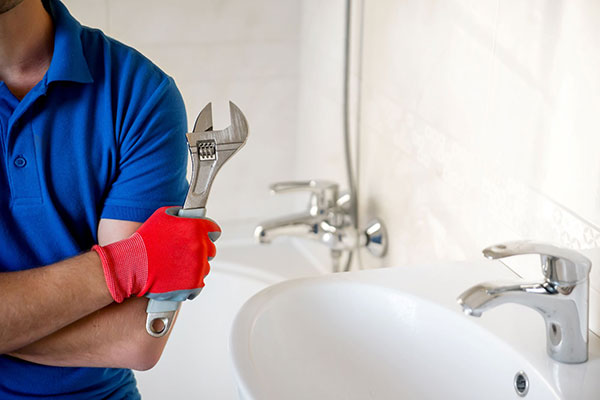
Once you venture into homeownership, understanding the basics of residential plumbing can seem daunting. Yet, it’s a skill as crucial as any other.
The role of plumbing in your daily life is often underestimated. It’s more than just a network of pipes hidden behind walls and under floors since the system ensures that households have clean water at their disposal when they turn on a tap, that waste water is carried away safely, and that appliances that require water function as they should.
When it works smoothly, it’s easy to forget about a home’s plumbing system. But when things go wrong, the consequences can be dire, from minor inconveniences to significant property damage. Even though most plumbing work should be carried out by a certified professional plumber North Shore, having a basic understanding of your home’s plumbing system can help you identify potential issues early, possibly saving you from high repair costs down the line.
This guide walks you through the basics of residential plumbing and offers practical tips to ensure the proper maintenance of your plumbing system. Read on.
Avoid Pouring Oil Or Grease Down The Drain
One of the worst things you can do for your plumbing is pour cooking oils or grease down the kitchen drain, as doing so can result in severe plumbing issues. For one, cooking oils and grease might flow down your drain when they are warm and in a liquid state, but as they cool down, they solidify. Over time, the build-up of these materials can create a blockage in your pipes, leading to slow drains or even complete clogs. When this happens, water can back up and potentially cause pipe damage.
So, what should you do with cooking oil and grease instead? The best practice is to let them cool down and solidify, then scrape them into a sealable container and dispose of them in the trash.
Learn Where Your Main Water Shutoff Valve Is Located For Your Home
It’s essential for homeowners to know the location of their home’s main water shutoff valve. This knowledge becomes especially critical during plumbing emergencies like a burst pipe. In these situations, you need to turn off the main water supply right away to prevent water damage and save a ton of money on repairs.
The main water shutoff valve is typically located in a basement, crawl space, utility room, or near where the water line enters your home. This valve is usually a round wheel (gate valve) or a lever (ball valve) on a pipe. To turn off the water, simply turn the wheel clockwise or turn the lever a quarter turn until it is perpendicular to the pipe.
Alongside knowing its location, it’s just as important to physically check the valve periodically and ensure it’s in working condition. Over time, these valves may become hard to turn due to rust or mineral deposits. If you have difficulty turning the valve, it may need to be replaced or serviced by a professional plumber.
Be Careful With Chemical Plumbing Cleaners Or Solutions
While reaching for a bottle of chemical drain cleaner to tackle a clogged or slow drain might be tempting, proceed with caution. These seemingly convenient solutions can often create more problems than they solve, potentially harming your plumbing system.
Chemical drain cleaners work by generating heat through a chemical reaction, which breaks down the clog. However, this heat can also damage your pipes, especially if they are older or made from plastic. Over time, the repeated use of chemical cleaners can weaken pipes, leading to leaks or even burst pipes.
Furthermore, these chemicals can be harmful to your health. They can cause skin and eye irritation; if accidentally ingested or inhaled, they can be poisonous. If you have a septic system, certain chemical cleaners can disrupt the balance of bacteria in your system, leading to other complications.
That said, it’s best to call a professional plumber for severe or recurrent clogs. They can accurately diagnose the problem and provide a safe, effective solution. While professional services might seem costly upfront, they can save you money in the long run by preventing further damage to your plumbing system caused by harsh chemicals.
Know What You Can – And Cannot Flush
Toilets aren’t garbage cans. They are designed specifically for human waste and toilet paper. Even items labelled as ‘flushable,’ such as wet wipes, feminine hygiene products, and cat litter, should not be flushed. Despite what their packaging suggests, these items do not break down in water as toilet paper does and can cause blockages in your pipes.
Other items that should never be flushed include paper towels, diapers, dental floss, cotton balls or swabs, and any type of food. These items can easily clog pipes, leading to backups or damaging your plumbing system.
Furthermore, flushing certain items can harm your septic system if you have one. Chemicals, medications, and certain types of food can disrupt the balance of bacteria in your septic tank, leading to malfunctions and potentially costly repairs.
Final Thoughts
Understanding the basics of residential plumbing is a practical skill for every homeowner and an essential way to protect your investment. While this guide has shared helpful tips and insights, some plumbing issues may arise that require professional attention. The key is knowing when to handle a problem on your own and when to call in the experts.
With this foundational understanding, you’re now more equipped to maintain your home’s plumbing health, ensuring a functional and comfortable living environment for years to come.
 My Favourites
My Favourites










Speak Your Mind